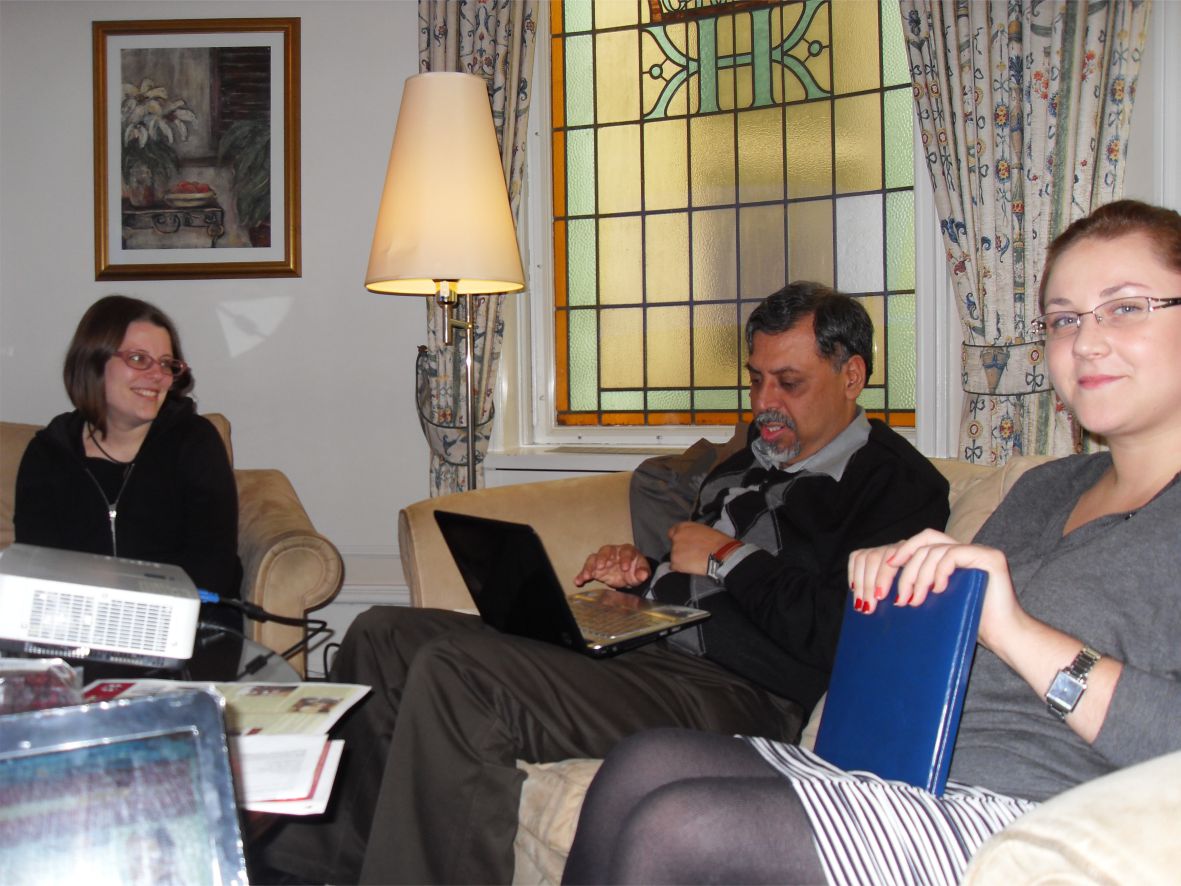12.11.2011Center Amalipe participated in a preliminary session on a program for community monitoring of the health care services in Roma communities, presented at the 4th European Public Health Conference in Copenhagen

Preliminary session “Community Monitoring: Year-In-Review & Next Steps”took place in Copenhagen on 8-9th of November, 2011. Participant in the session were Erin Howe a Program Officer on Accountability and Monitoring in Health Initiative (AMHI) in Public Health Program of Open Society Foundations, New York, USA, Prof. Abhijit Das from Centre for Health and Social Justice, India and Clinical assistant professor at University of Washington, Seattle, USA, AnaDomiloiu - Education program assistant at Roma center for health policies “Sastipen”, Romania and Momchil Baev – health projects coordinator at Center Amalipe, Bulgaria.
Some of the objectives of the preliminary technical assistance meeting were to share experiences of community monitoring conducted during the year, to identify good practices and challenges within the related processes of community mobilization and empowerment, community enquiry and sharing and advocacy for change (i.e.: working with government officials) as well as to build additional skills related to community mobilization and community enquiry based on a review of current practices and to agree on next steps and areas where follow-up technical assistance is needed to strengthen community mobilization and monitoring efforts.
On behalf of Center Amalipe Momchil Baev presented some of the assumptions that the organization has on the current state of the Program “Community Monitoring for Health Care Services in Roma Community: Strengthening Community Mobilization and Advocacy”. The health status of Roma community in Bulgaria is significantly lower than the one of majority Bulgarian population. For example, the national figures show that the life expectancy of Roma is 10 years shorter that the one of ethnic Bulgarians. The health care services provision in Roma community at grass-root level also meets serious problems, especially in the rural areas. There are some policy articulations for addressing Roma health issues, but as a whole the policy attention to ensuring equal access of Roma to health care is low; health care is the weakest part of the entire policy for Roma integration. One of the main reasons for this is the lack of proper monitoring and evaluation (M&E).
The program of the meeting continued with some of the main findings that Momchil Baev presented on the first community inquiry that was held in Veliko Tarnovo and Pavlikeni municipalities in mid 2011. The figures show that some 54 % of the respondents do not have health insurance, 42 % say they do have health insurance and some 4 % did not know their health insurance status or did not respond. Another significant alarming finding of the inquiry shows that only 22% of the health insured do know the phone number of their general practitioner (GP).
The technical assistance meeting was held as part of Amalipe’s and Sastipen’s participation in the 4th European Public Health Conference 10th – 12th of November 2011, Copenhagen, Denmark.








